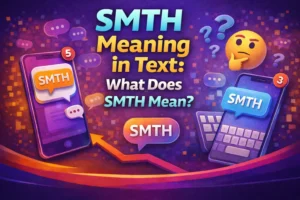Artificial intelligence (AI) is now vital in recruiting across companies, from Fortune 500 firms to startups, using AI-powered resume screening to save time and resources. As a job seeker, should you opt out of AI screening if given the choice? This paper explores the advantages and risks of opting out, offering unique insights beyond generic advice. It examines lesser-known factors such as the psychological impact on candidates, persistent human biases, and how refusing AI screening might affect your chances of landing your dream job, helping you make an informed decision.
No, you should not opt out of AI resume screening because it’s widely used by employers to shortlist candidates. Instead, optimize your resume with relevant keywords and clear formatting to improve your chances. Opting out may reduce your opportunities.
Opt out only if you prefer a human review or have a creative resume that AI may misinterpret. Otherwise, optimize your resume for AI screening to increase your chances.
What is Resume Screening by AI?

In AI resume screening, resumes are analyzed and ranked with algorithms that employ certain set criteria. These are programs assigning keywords, skills, experience and other job description-related possibilities. The aim is to find the best-suited persons in the shortest time possible and in an effective manner.
Although the application of AI screening tools can make the hiring process much more efficient, it is not without its cracks. Critics say that such systems can miss out on professionals who can be qualified based on other reasons that stem from bias, context insensitivity, or stringent values.
Pros of AI resume screening
1. Maximization of Efficiency and Speed
Thousands of resumes can be processed in seconds using AI freedom, which saves time in the shortlisting of candidates. It will be quicker in terms of job seekers getting feedback and a quicker hiring process.
2. In theory, objective evaluation
Rather than personal biases, AI tools systems are built to score resumes on the basis of data. This will bring equality among candidates who would end up being unable to get a chance because of unconscious biases in human recruiters.
3. Their Orientation to Relevant Skills
The AI-powered tools weigh resumes in accordance with the job description. This will make sure the right skills and experience are cited and therefore have a higher probability of having an interview.
4. Large firms' scalability
AI screening will be a viable option in organizations where hundreds or thousands of applications are received. It saves recruiters the time it takes to trawl through assorted resumes to find the best candidates.
The risks of AI resume screening

1. Losing the context
Neural AI systems might not be able to read between the lines in a resume. An example would be that a gap or unconventional type of work experience would be taken badly, even when it is well justified.
2. Keyword Dependency
The AI software usually uses keywords to sort resumes. You may be dismissed even though you are highly qualified because your resume does not contain the terminology used in the job description.
3. The risk of Bias
Whereas AI is supposed to be impartial, it can be biased to the information used to train it. As an example, when a firm has always recruited individuals of a particular demographic group, then the AI may have a bias towards recruiting similar profiles.
4. Underestimating Creativity and Soft Skills
Hard skills and experience cannot be simulated as well by I/O systems as soft ones, such as creativity, leadership and adaptability. This may be applicants who are good at other aspects that are not so measurable at a disadvantage.
5. Privacy Concerns
By sending your resume to a robot, it also transmitting personal information to an algorithm. There are risks of having your information used or misused or exposed to a breach.
Is it worth opting out of AI Resume Screening?

Whether to veer away or not in AI resume screening is dependent on your circumstances and which companies you are aiming at. These are some of the factors to consider:
When Opting Out Might Be a Good Idea
Your Background is not Traditional
The human recruiter may feel more touched by your resume in case it contains a non-traditional career break or a variety of experiences.
You are Applying to Small-sized Companies
Smaller organizations can have a minor dependence on AI screening and more on human judgment, meaning that it is easier to get past them.
You are Concerned About Privacy
In case you do not want an algorithm to know your personal details, it is a good idea to turn off changes.
The Other Way Opting out Can Be a Risk
You are Applying to Large Corporations
Large organizations are very likely to apply the screening of AI as a filter. Boycotting this may ensure your resume never hits human eyes in the form of a recruiter.
You are also aiming at positions with lots of competition.
Artificial intelligence screening is a normal practice in competitive industries. Your opt-out may put you at a disadvantage when compared to those candidates who active-fervently embrace the system.
You are Sure in the Optimization of Your Resume
You may not need to opt out if you have customized your resume to match the AI requirements.
The guidelines on how to survive the AI screening of resumes

The choice of opting out or not will not affect your overall outcome in the world of AI-based job markets the same, but some measures can be taken to increase the likelihood of success.
1. Optimize Your Resume for AI
Use some relevant keywords from the job description.
Adhere to an unambiguous format.
Make sure that the graphics, images or innovative layout does not confuse the algorithm.
2. Point out Objective Successes
The strength of AI systems is in the concrete data. Quantify your achievements in numbers and metrics (e.g. “Increased sales by 25% within six months”).
3. Taylor Your Resume to the Job
Tighten your resume to suit the exact requirements of the position. This makes it more probable that one will ensure they pass the AI screening.
4. Utilise Your Network
Networking can be advantageous in that it can help you bypass AI screening together A referral or direct contact with a recruiter has the potential to place your resume at the top of the heap.
5. Human Centric Apps
At other firms, the candidate can directly submit a resume to a recruiter or a person doing the hiring. Watch out to circumvent AI screenings.
Future of AI in Recruitment
The use of AI in hiring is still emerging and thus the technology will change as AI moves forward. So companies are catching up to the fact that AI screening is limited and should not be used. It could happen that in the future, there is a mix of the efficiency of AI and the nuance of human judgment.
These trends are important to become aware of as a job seeker. Learning about AI and its functionality as well as adjusting to it, can provide you with a competitiveness advantage in the job market.
FAQs
Q1. Is AI resume screening something I should opt out of?
The option of opting out normally decreases your chances, particularly with the large companies that may use AI as the initial filter. Remaining in the system allows your resume to be viewed.
Q2. How can I unsubscribe in case I want to?
Avoiding AI reshuffling is possible through sending a resume to a hiring manager personally or through referral to employees in the company. This is more effective on small companies.
Q3. How much time is saved with AI when hiring?
It can potentially reduce the time spent screening resumes by as much as 70, 75 percent and enable employers to move more quickly through large stacks of applicant resumes.
Q4. What can I do to get better odds when screening with AI?
Use job description keywords, keep it simple and use quantifiable accomplishments to be in line with AI requirements.
Q5. Do people look at resumes digitally forwarded by AI?
In most instances, yes- AI sorts or sifts through resumes and recruiters skim the shortlist. Some of the companies are more dependent on automation.
Q6. Is it worth using AI to write a resume?
Tools that scan resumes can be used to customize them, but recruiters will like sincerity. Excessive use of text produced by AI can cause employers to turn away.
Final thought
Artificial intelligence in resume screening is more efficient and objective, but it has risks because screening may be biased; a lack of context can be harmful and an invasion of privacy. There is a need or not to hire a debt consultant, depending on the objectives and target companies.
Use AI-screens and customise your resume to its requirements; human-based screens and the traditional hiring processes represented by networking.
To succeed today, you must be adaptable-learn more about AI advantages and threats to make better decisions and maintain control over your career direction.




